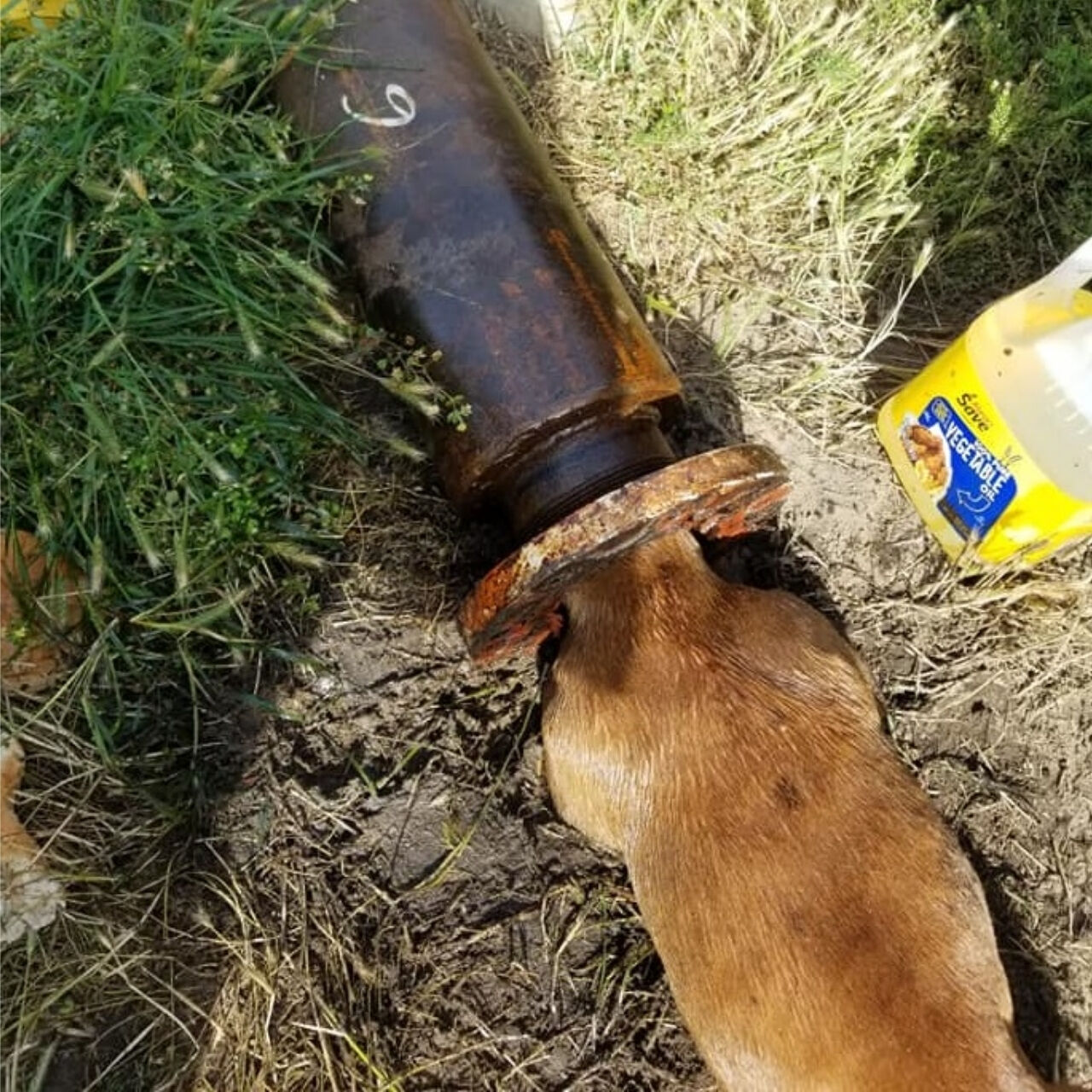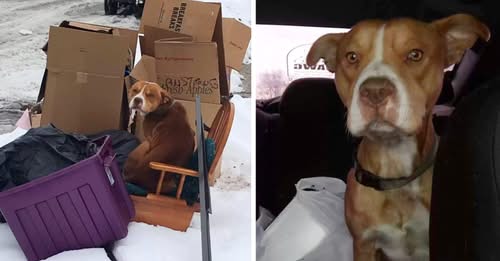When Joe McBride finally pulled into the center of town, people stopped in their tracks. Cars slowed, children pointed, and even the local deputies who had urged him to leave days earlier stood speechless. The sight was something no one had ever witnessed: a massive Watusi steer, with horns stretching nearly eight feet wide, calmly sitting in the gutted remains of a car, rolling down Main Street as if it were the most natural thing in the world. Behind the wheel sat Joe, soaked to the bone, his face a mixture of exhaustion and quiet pride. He had lost nearly everything, but Duke was safe, and that was all that mattered.
For Joe, Duke was not just a cow. He was family, a living reminder of love and loyalty that had carried him through his darkest days. Years earlier, Joe had lost his wife, and the loneliness that followed nearly broke him. The farm had become quiet, too quiet, and life seemed hollow. But Duke, then just a young steer, was there every morning at the fence line waiting for Joe’s voice. The bond between man and animal grew over the years, and soon Duke was more than livestock; he was Joe’s constant companion, the heartbeat of the farm.
That’s why, when the floodwaters rose and neighbors packed their belongings into trucks, Joe never considered leaving Duke behind. Deputies warned him that the water was rising faster than anyone expected, that the cattle and the fields would be gone, and that his life wasn’t worth the risk. Joe listened quietly, but inside he had already made his decision. He could lose the farm, he could lose the house, but he would not lose Duke.
The night before he cut apart his old Ford, Joe barely slept. He listened to the roar of the floodwater, the groaning of trees bending under the pressure, and the crack of wood splintering in the distance as barns and sheds gave way. The trailer he had once used to haul Duke was long gone, washed away in the first surge. There were no other options, no neighbors with equipment large enough to help. So, with little more than stubborn love, Joe came up with a plan.
By lantern light, he dragged tools into the shed. The Ford was old, dented, and rusting, but the engine still ran. He measured the width of Duke’s horns against the car roof, then marked the lines. Each cut of the saw sent sparks into the dark as the roof peeled away. Hours passed, his arms heavy and his body aching, but Joe didn’t stop. He worked until dawn, sweat mixing with rain as he fashioned rails to hold Duke in place. By morning, the car looked more like a strange half-wagon than a truck, but to Joe it was hope.
Getting Duke inside was no easy task. The steer weighed over a ton, and the mud made every step treacherous. Joe coaxed him gently, calling his name, guiding him inch by inch toward the car. At one point, Joe slipped, falling to his knees in the water, but Duke stood patiently, lowering his head as if to encourage him to get back up. With one final push and a makeshift ramp, Duke settled into the gutted car, his great horns rising like sails over the rails Joe had built.
As Joe started the engine, the sound was almost drowned out by the flood rushing around them. He gripped the wheel, pressed the gas, and the car lurched forward, water splashing high around its tires. Every few feet the engine sputtered, but somehow it kept going. Joe’s heart pounded as he navigated through waist-deep water, branches and debris floating by, the current tugging at the vehicle. But each time he looked to his right, there was Duke, calm and steady, trusting him completely.
By the time they reached town, word had already spread. People had seen them coming from a distance, the strange outline of horns rising above the floodwaters. When they finally rolled onto dry ground, a small crowd had gathered, phones out, recording what would soon become a story that traveled far beyond Llano County.
Reporters later asked Joe why he risked his life, why he destroyed his only vehicle for a steer. He gave the same answer every time, simple and unwavering: “Duke’s all I’ve got.” It wasn’t about practicality or survival—it was about love, loyalty, and the unspoken bond between a man and the animal who had carried him through his grief.
In the days that followed, as rescue crews assessed the damage and families mourned the loss of their homes, Joe and Duke became something of a symbol in town. People who had lost so much found comfort in the sight of the two survivors, a man and his steer who refused to let go of each other no matter what nature threw at them. Strangers offered Joe food, clothes, and even money to help rebuild. But Joe never asked for anything; he just kept Duke close, brushing the mud from his coat, whispering to him the way he always had.
The flood had taken nearly everything—fields that had once been green with grass, barns filled with hay, fences that marked the boundaries of a family farm passed down for generations. But in saving Duke, Joe saved the part of himself that still believed in tomorrow. Even in the face of devastation, he chose loyalty over loss, and in doing so, reminded everyone watching what it means to truly value life.
Weeks later, as the waters finally receded and the land began to dry, Joe walked the farm with Duke at his side. The place looked unrecognizable, scarred by mud and debris. Yet Joe didn’t see only destruction. He saw a chance to start again, to rebuild, not for himself, but for Duke. “As long as he’s here, I’m here,” Joe said quietly to a neighbor who came by to check in. “We’ll make it through.”
The story of Joe and Duke spread far beyond their small Texas town. It was shared on social media, featured on evening news, and written about in papers across the country. People from all walks of life found inspiration in the image of a man who refused to leave his best friend behind. Messages poured in, some from as far away as Europe and Australia, from people who said the story gave them hope, reminded them of their own pets, or simply showed them that kindness still existed in the world.
For Joe, none of the attention mattered much. He didn’t save Duke to make headlines or to become a symbol of resilience. He did it because, when the world was at its darkest, Duke had been there for him. And when the flood came, he simply returned the favor.
The farm will take years to recover, if it ever fully does. The losses are real, and Joe knows there will be hard days ahead. But every morning, when he steps outside and sees Duke waiting for him, alive and strong, he feels something greater than loss. He feels gratitude. Gratitude that when everything else washed away, the one thing he couldn’t bear to lose remained by his side.
And so, a man and his steer continue on together, rolling forward through the aftermath of a flood the same way they rolled through town that unforgettable morning—side by side, unshaken, and bound by a bond stronger than any storm.














